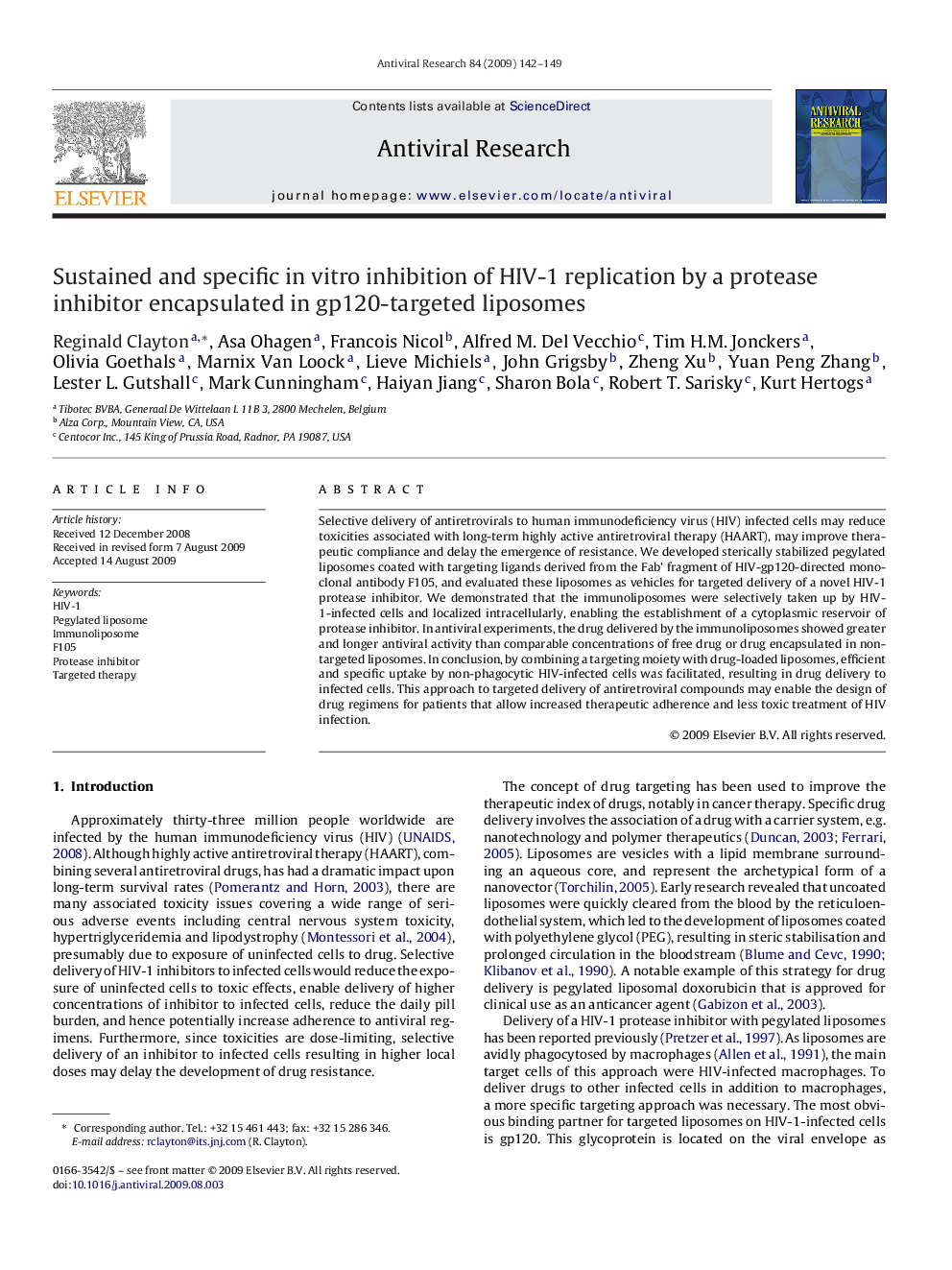| Article ID | Journal | Published Year | Pages | File Type |
|---|---|---|---|---|
| 5823031 | Antiviral Research | 2009 | 8 Pages |
Selective delivery of antiretrovirals to human immunodeficiency virus (HIV) infected cells may reduce toxicities associated with long-term highly active antiretroviral therapy (HAART), may improve therapeutic compliance and delay the emergence of resistance. We developed sterically stabilized pegylated liposomes coated with targeting ligands derived from the Fab' fragment of HIV-gp120-directed monoclonal antibody F105, and evaluated these liposomes as vehicles for targeted delivery of a novel HIV-1 protease inhibitor. We demonstrated that the immunoliposomes were selectively taken up by HIV-1-infected cells and localized intracellularly, enabling the establishment of a cytoplasmic reservoir of protease inhibitor. In antiviral experiments, the drug delivered by the immunoliposomes showed greater and longer antiviral activity than comparable concentrations of free drug or drug encapsulated in non-targeted liposomes. In conclusion, by combining a targeting moiety with drug-loaded liposomes, efficient and specific uptake by non-phagocytic HIV-infected cells was facilitated, resulting in drug delivery to infected cells. This approach to targeted delivery of antiretroviral compounds may enable the design of drug regimens for patients that allow increased therapeutic adherence and less toxic treatment of HIV infection.
